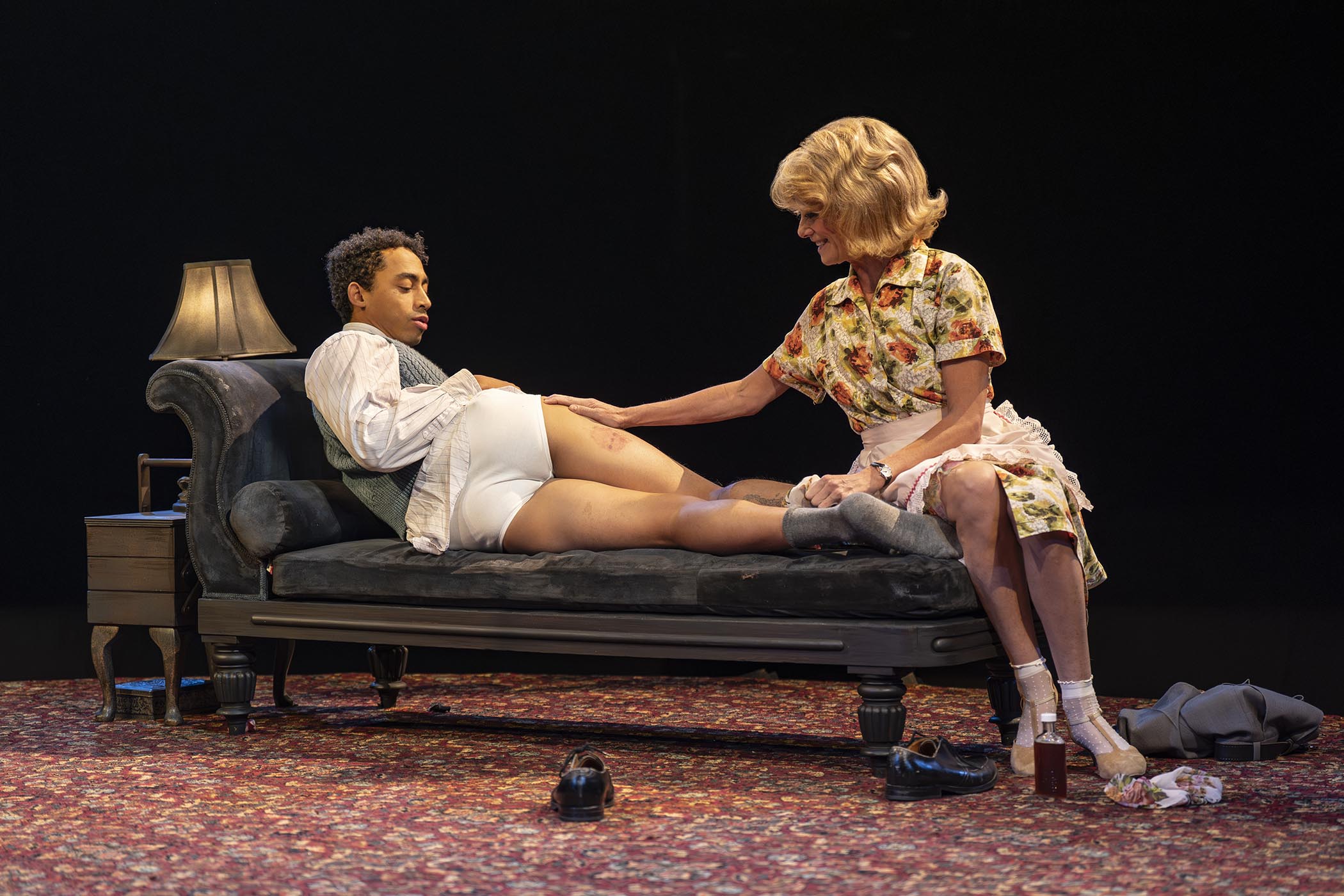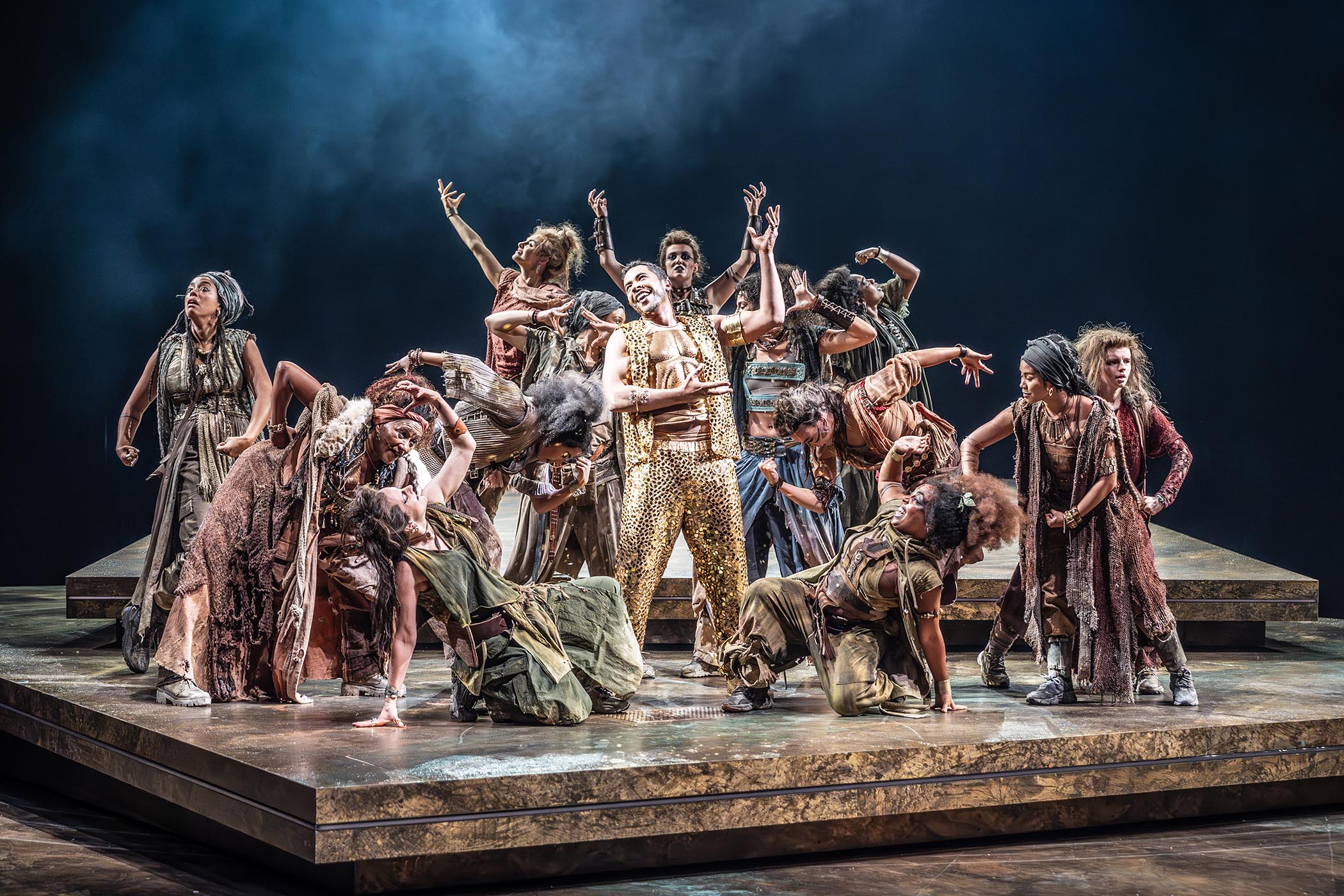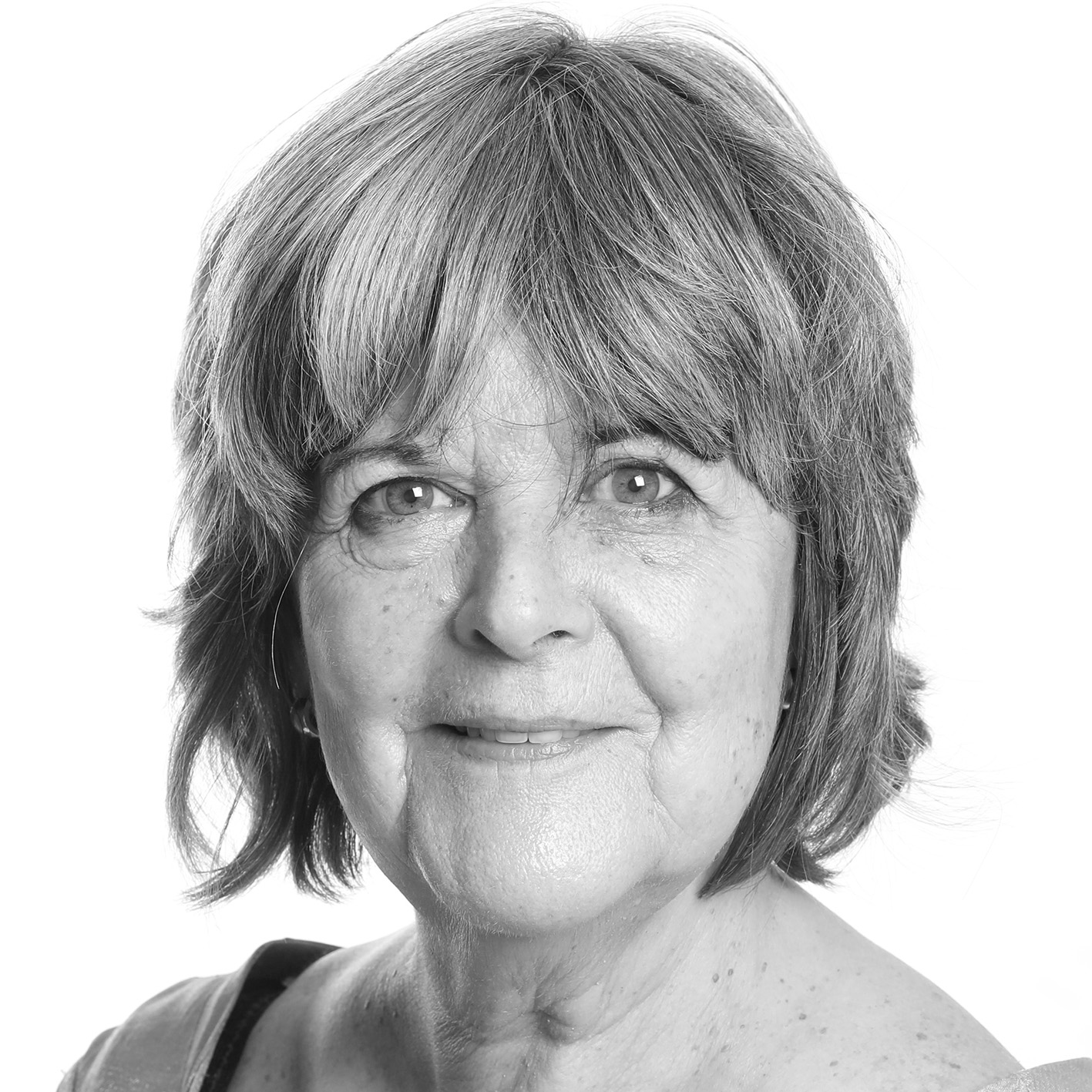These are vital months for the theatre in London. By next spring, the National and the two Vics, Old and Young, will have new artistic directors. The three stages make a golden chain south of the river: a vivid alternative to the West End.
Who would not rather saunter along the Cut than barge down Shaftesbury Avenue? Rupert Goold moves from the Almeida to the Old Vic next year; last month, Indhu Rubasingham and Nadia Fall launched their first seasons at the National and the Young Vic respectively.
Rubasingham, who reinvented the Kiln in Kilburn, knows how to charge up the energy of a building as well as a play. Her production of this reworking of Euripides’s Bacchae throws down a gauntlet. It speaks up for new writers, feminism, irreverence, open borders, stages that dance. Cheering aims. Yet while the declaration of intent is evident and invigorating, the show itself is often raw.
Gains and losses are intertwined. Nima Taleghani is the first person to have a debut play put on in the big Olivier. That’s wonderful, and the actor-writer’s flashing, dashing, rapping script is attuned to the figure of Dionysus, god of theatre and wine, who incites (yes, the men are still in charge) women to wander with him as he pits himself against his cousin King Pentheus. Taleghani’s drama is, like the theatrical god, vivid, over the top, cocksure, maddening. The plot lends itself to championing the oppressed and homeless people – but current-day parallels are overthumped. A fundamental remaking of the chorus presents the maenads – good name for a band – not as a blended unit but as multivoiced, yet their individuality is smudged. Each is a recognisable type: herb grinder or thesis writer. Ironically, in a drama that demands these voices are listened to, they are indistinct, hard to hear.
‘Until I was 15 I was more familiar with Africa than my own body’ might have sprung from an Alan Bennett monologue
‘Until I was 15 I was more familiar with Africa than my own body’ might have sprung from an Alan Bennett monologue
Boldness yields undeniable assets. A strong design by Robert Jones: great gleaming blocks piled up askance; the mightiest wardrobe, a monument to vanity, ever seen on stage; a magnificent opening video of a huge white blood-streaked horse galloping towards the stalls.
As Dionysos, Ukweli Roach glitters and compels, as much in speech as in his all-over gold costume. James McArdle is superb as a chilly, unreadable Pentheus. Clare Perkins, who ends the evening with a forthright claim for renewal, brings to the National the natural force of expression she exerted at Rubasingham’s Kiln. There she was the Wife of Willesden; now she is the theatrical woman of Waterloo.
Early on in her reign at Stratford East, Nadia Fall created a characterful chorus of women when she presciently programmed Sarah DeLappe’s play about a female football team, The Wolves. It might have been a stronger opening for her artistic directorship at Young Vic than Entertaining Mr Sloane. Fall has talked of Joe Orton’s play as being a “cathartic scream”, but it would take a swifter, funnier, more snarling production to make it look more than a word-spangled sigh.

Jordan Stephens and Tamzin Outhwaite, who gives ‘the best performance of the evening’, in Entertaining Mr Sloane
First staged in 1964, Sloane inhabits some of the same territory as Pinter: claustrophobic rooms, dandy thugs, intricate phrases and violent action, a melding of threat and sexual arousal. Poking at England’s fetid gentility. Yet where Pinter’s terror and excitement is seething – the rustle of a stocking can sound like the spray from a machine gun – Orton’s boils. There is music hall misogyny among the men who sidle up to each other asking if leather is worn next to the naked skin. There is period farce – false teeth shooting across the floor. There are straddlings and bumpings off. A young man turns up to rent a room built on a rubbish dump.
Peter McKintosh’s design – intriguing but insufficiently sewer-like – dangles furniture above the stage as if a set for Ionesco’s The Chairs had taken off. Sloane, the lodger, played numbly by Jordan Stephens of hip-hop duo Rizzle Kicks, is remarkable for his delicate skin, which the landlady soon takes to stroking, calling herself his mamma: Tamzin Outhwaite gives the best performance of the evening, whimpering in an apron that is soon whipped off. Sloane’s criminal past is quickly sussed by the father of the house, a crumpled Christopher Fairbank, his allure rapidly appreciated by an insufficiently voracious Daniel Cerqueira.
There are lines of brilliance and cadences that ripple through unexpected areas of British playwriting: “Until I was 15 I was more familiar with Africa than my own body” might have sprung from an Alan Bennett monologue. They should have made Orton’s play a promising choice, but their dazzle fades here: the pace is too respectful for the eye-rolling Sloane, too ponderous to be entertaining.
Newsletters
Choose the newsletters you want to receive
View more
For information about how The Observer protects your data, read our Privacy Policy

